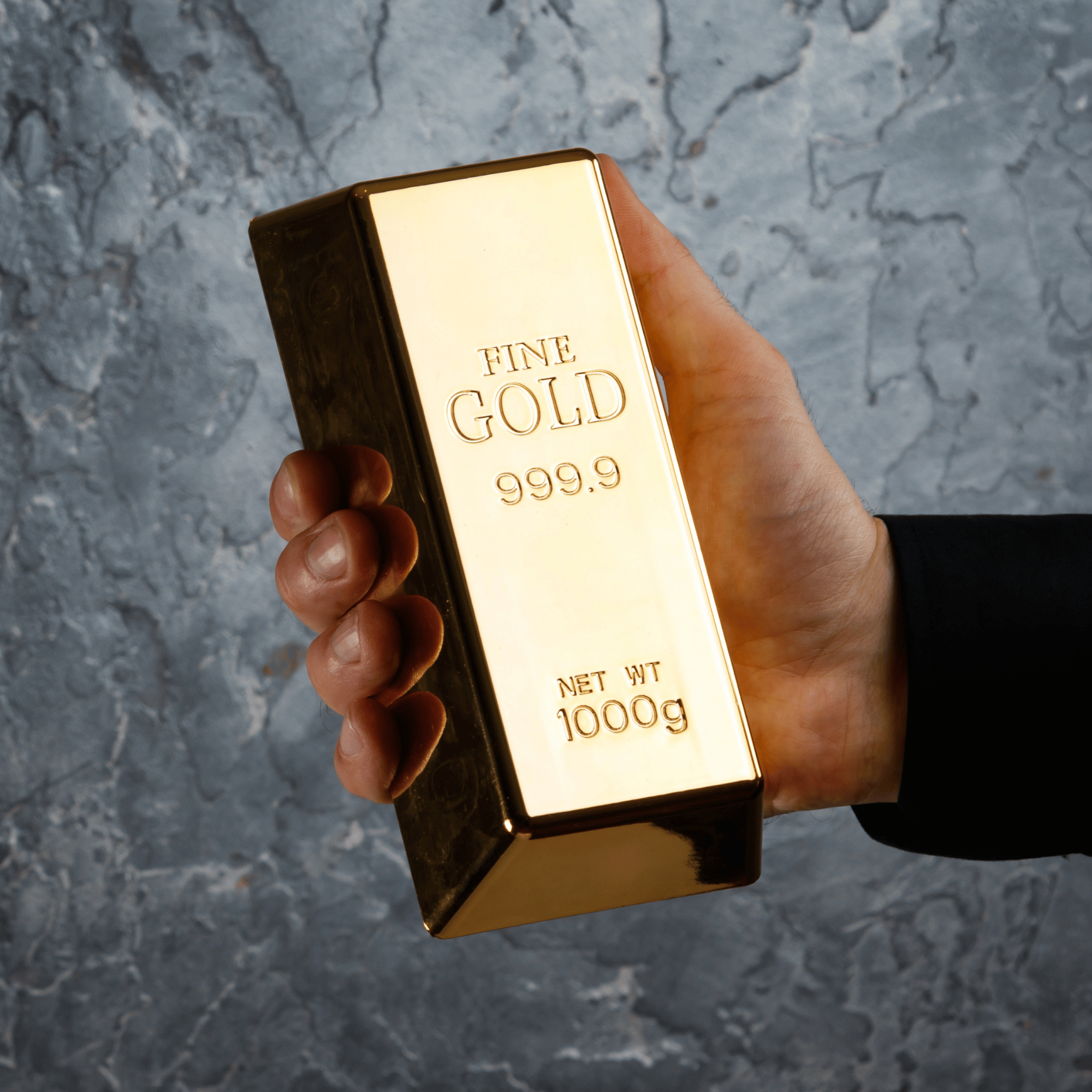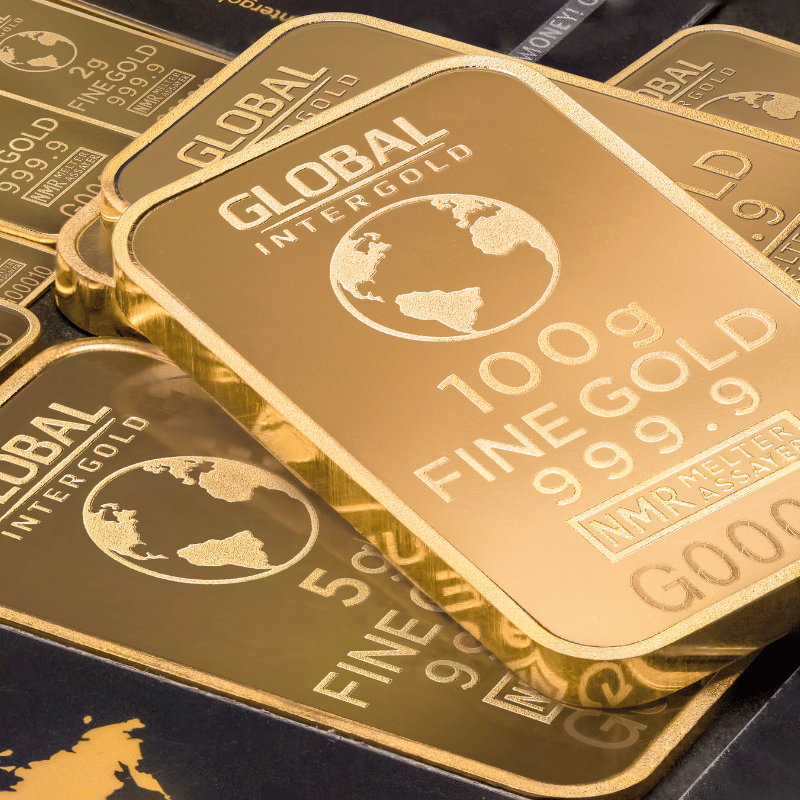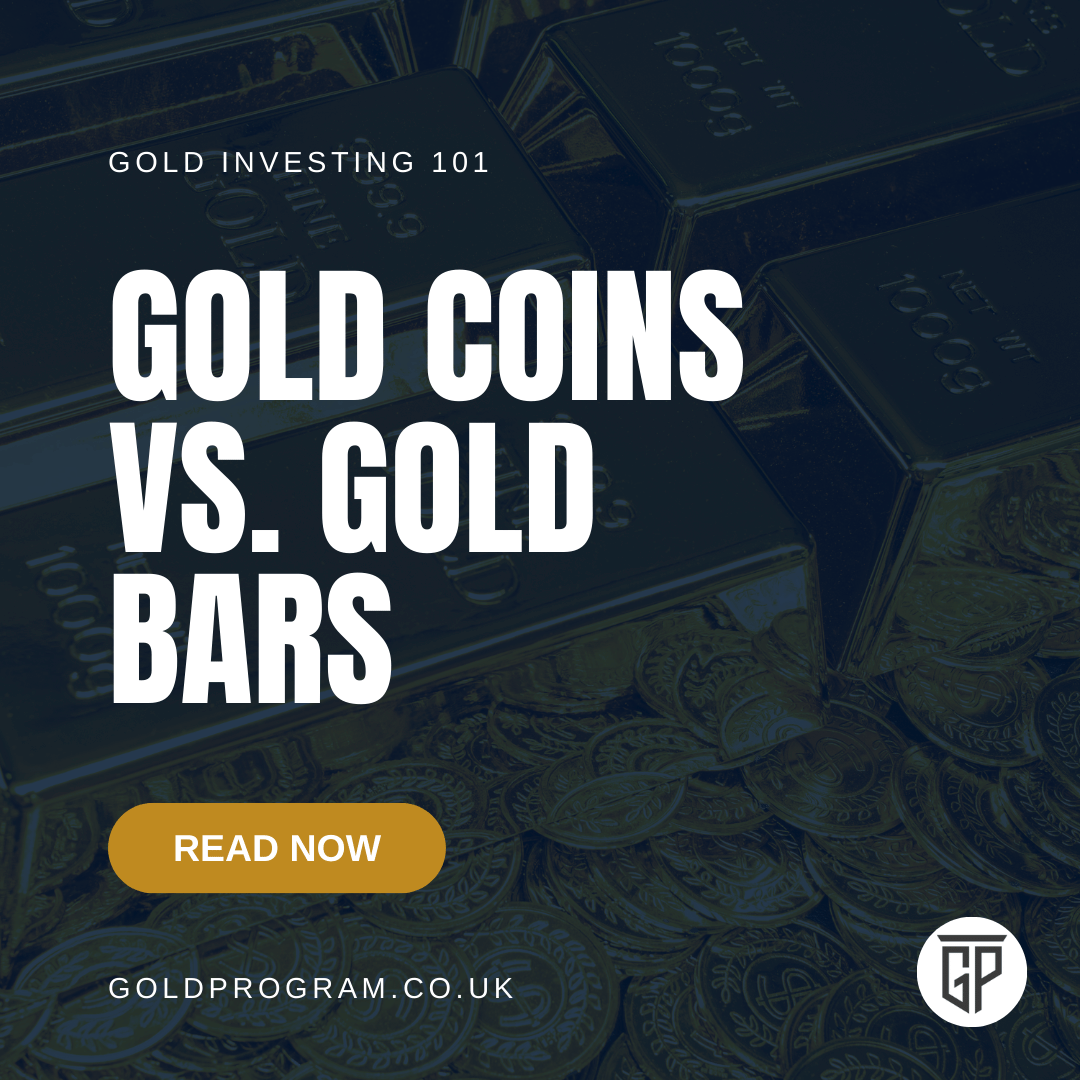
Turn Cash into Gold
TRY AND PROTECT YOUR MONEY FROM THE RAVAGES OF INFLATION
Why Turn Your Cash into Gold?
If you’re holding onto cash, you’re already losing money thanks to inflation. Over time, the value of your savings can quietly shrink. Converting cash into physical gold is one way to protect your wealth and hold something that keeps its value when currencies don’t.
It’s important to understand that you don’t have to take delivery of it - you can get it stored and insured professionally.
The Gold price has increased by OVER 10.6% on average per year since 2000 in GBP (that’s an average ANNUAL increase of over 10.6% for MORE than 25 years!).
That’s a LOT higher than inflation
Gold is incredibly liquid, you can often sell it and get cash into your bank account in a few days. With inflation eating into your cash, it might make sense to buy some gold.
I know that cash gives you the CERTAINTY as to how much you’ll have, but with increasing inflation you’ve NO LONGER got the CERTAINTY of what you can do with it! YOUR purchasing power is being eroded.
You DON’T need to take delivery or insure it yourself - you can avoid that stress. Have it stored and insured AWAY from your home.
Do you have any in your portfolio?
3 Things I Look For When Turning My Cash into Gold:
A reputable, trustworthy dealer
I only buy through providers with a strong track record, ideally ones that offer secure storage, full insurance, and transparent fees. Peace of mind matters when you’re storing real, physical assets.Competitive pricing
I look for fair premiums over the spot price, clear pricing structures, and no hidden fees.Reliable buy-back options
Liquidity is key. I use dealers who can buy back my gold quickly and transfer the cash into my bank account without hassle, usually within a couple of working days.
How to Get Started
For UK and European buyers
You must do your own due diligence when buying gold, but I suggest considering The Pure Gold Company. I buy my physical gold from them, and truly believe in their service.
They are affiliate members of the LBMA (The London Bullion Market Association) and members of the British Chamber of Commerce and the Royal Numismatic Society. They are also authorised distributors for the Royal Mint.
If you want to find out more about them then please click on the link below:
For US and Canadian buyers
You may want to look at the Hard Assets Alliance. They are part of GBI, one of the largest gold dealers in North America which manage about $5 billion. They are part of the National Coin and Bullion Association, members of the London Bullion Market Association, and their President is on the advisory board of the World Gold Council.
For more information, click on the link below.
Want to Learn More About Turning Your Cash into Gold?
FAQs
-
Gold provides diversification in a portfolio and is often correlated with the stock market during risk-on periods (when investors are bullish), while it decouples and becomes inversely correlated during periods of stress (market downturns). This means its price tends to move in the opposite direction of stocks when markets are under pressure, potentially mitigating losses.
I like the idea of being diversified. If something happens in the World that scares the hell out of me. It’s likely to affect my investments. It could be good or it might be bad. What I like about gold is that if it’s something that causes say a market crash, then although that will hurt some of my investments….because of this correlation, my gold could do very well.
In times like these, I’d probably view it just as much as insurance as an investment.
In case you’re wondering what a correlation is, it’s how an asset performs relative to another asset.
Here is a definition for you…..
“Correlation analysis is a statistical method used to evaluate the relationship between two variables, such as the association between body size and shoe size. The strength of this relationship is measured by the correlation coefficient, which ranges from -1 to +1.”
-
Gold bars are available from 1 gram to 1 kilo and you can also buy a single coin.
It’s difficult to say what the minimum investment should be …..but £200 should be enough to get you started.
You would need to speak with your dealer about what they have available. I’d suggest you speak with them first before transferring any money. You don’t want to be in a situation where you’ve transferred the money and they don’t have the product you want available (unless you’ve been able to reserve it!).
In terms of any concerns about the reputation of your dealer, I’d check to make sure they’ve got some good accreditations/memberships (such as British Chamber of Commerce or the London Bullion Market Association (“LBMA”)). It’s also worth putting a call into them first to make sure you’re happy with their service – do they pick up the phone and respond to your questions quickly and professionally.
-
You should be able to leave precious metals in a will, however, I would advise you to seek further advice from an expert in this field (such as the person who prepares your will). I would have thought that they will be able to answer your question, if they can’t, the company that you plan to buy the gold from might be able to help.
In terms of why you may want to do this, here are a few things to think about.
Gold is a global asset, so although things in your country will obviously have a value. For any loved ones living abroad, if you leave them gold, they may be able to utilise it more easily where they live.
Since 2000, Gold has increased in value on average over 10.6% per annum, so it could become a valuable asset to leave in your will.
Gold has been around for thousands of years, it’s not some “new kid on the block”, so it’ll hopefully remain valuable long after you’re gone. Other assets (such as Crypto) don’t have anything like this track record.
You can’t print gold or create more of it on a computer. It’s a tangible asset.
-
You’ll probably find that the dealer you buy the gold through will only deliver it to the same address that you use when you buy it (if you want it to be delivered – they can often store and insure it for you). Similarly, if they’re wiring you funds with regard to the sale of any gold, it’s likely to be sent to the same account that you bought it from.
In the same currency.
If you are planning to use a different account or for that matter, address, I would speak with the dealer in advance of the transaction to ensure that it’s possible to do this.
With regard to currency, in most cases I would expect the transaction to be in your domestic currency both buying and selling.
Should you want to transfer it to a different currency, you can probably do this through your bank, or if the exchange rate they’re using is not attractive, you might want to look at organisations such as Wise. Whatever you choose to do, you must carry out due diligence first and ensure that the parties you’re planning to use are able to carry out the transaction as you want to execute it.
-
Although I would expect you to be ok, because the gold is likely to be held “separately”, this is something you should check with the party you’re buying it from, before you actually purchase it.
If your dealer goes bust, the gold should still belong to you and administrators would likely step in to run the business until a final decision is made about what happens next. I’d check this out before you buy it, but with the right dealer you should be fine.
So you should be ok, but you MUST check what happens in not only this circumstance, but also any others that could potentially happen – such as a robbery.
Given the above, you will hopefully not need to get your gold from them!
-
You are unlikely to be able to do this. If you buy it with one dealer they will store it with the storage company that they use (they should be able to tell you who this is before you buy it). If you’re unhappy with their storage facilities you should not have bought it in the first place. In the unlikely event that they change their storage facilities and you’re unhappy with the new facilities then you would need to speak with them about what you can do. I would expect them to insist that you sell the gold and then repurchase it with someone else who’s facilities you are happy with.
This sale and repurchase is likely to cost you money. How much really depends on the bullion dealer you are working with – they may be willing to reduce/waive some costs because of the circumstances.
I’d suggest making sure you’re happy with their storage facilities before buying any gold.
-
I think this very much depends on how much gold you are planning to have.
I’d say you really need to look at the reasons for having it with different companies as well.
The main reasons being as follows:
An event happens at the company where your gold is stored (such as a robbery)
The company that stores your gold goes bust
You want to spread your risk – perhaps you don’t know which country you will be in.
I’d therefore suggest having at least some of your gold in the same country as you. If you might be spending a lot of time in more than one country, you may be able to find a dealer who has operations in both countries. This may make life easier – but you need to check with them first!
If you’ve got a lot of gold (this is a very arbitrary number but say more than $1m), then it may make sense to store it in more than one location, but a lot of storage facilities store gold worth a lot more than this. It’s really down to you. The whole idea is to reduce rather than increase your stress levels!
Personally speaking, if the gold was stored in the same country that I live in and it was less than $1m, I’d probably store it with one organisation, but if I had more than this. I’d probably store it with another party as well. But that’s very much a personal opinion.
In all situations you should carry out extensive due diligence to ensure the gold will not only be safely stored, but also properly insured.
-
Yes, you can buy gold for them. You should be able to set up an account in their name (check with the bullion dealer first), put it in funds and then buy the gold you want.
Nowadays there are quite a few identity checks that you have to do, so I’d suggest you find out what’s required before setting the account up.
-
Yes, you can. The people you are buying it from will carry out normal “Know Your Client” checks along with any other due diligence that they want to carry out on the company (you would need to speak with whoever you are buying the gold from to find out what information they would like).
I’d suggest you speak with your accountant first and explain why you want to do it and make sure that they’re happy with your plans.
Your accountants can also explain how the gold will be treated in your accounts (including any tax implications).
It’s worth noting that silver attracts VAT, so if your company is VAT registered, you might be able to try and claim that back. Find out the situation BEFORE you buy it!
What I particularly like about Gold is the fact it’s so liquid, so it may be able to not only provide a source of liquidity, but hopefully an appreciating asset.
-
The main way you can get an accurate price is to speak to the people you bought it from and find out what they would sell it to you for. You obviously can’t do this that often (more than a few times a year), but as a proxy, I would generally look at the at the gold price at the time I bought it and the gold price now.
You can get this information from websites like this one.
You can then adjust the valuation to reflect any storage and insurance costs that you have paid as well as the deal that you’ve agreed with the people you bought it from.
For example, they might charge you a small premium on the spot price when you bought it (say3%) and also charge you a fee when you sell it – perhaps another 3%.
-
I believe you can leave precious metals in a will, however, I would advise you to seek further advice from an expert in this field (for example, the person who puts your will together). If they are unsure then the dealer you bought it from can hopefully provide you with some answers.
In terms of why you may want to do this, here are a few things to think about.
Gold is a global asset, so although assets in your country will obviously have a value to any loved ones living abroad, if you leave them gold, they may be able to utilise gold more easily where they live. For example, if you leave them a house, they might have the hassle of coming over to sort out the sale or have to pay someone to do it on their behalf.
Since 2000, Gold has increased in value on average over 10.6% per annum, it could become a valuable asset to leave in your will.
Gold has been around for thousands of years, it’s not some “new kid on the block”, so it’ll hopefully remain valuable long after you’re gone. Some assets (such as crypto) don’t have a particularly long track record.
You can’t print gold or create more of it on a computer. It’s a tangible asset.








